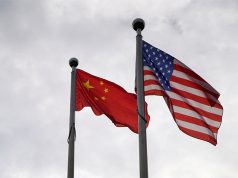People were impressed when a video of Japanese and Sengelese fans cleaning up the stadiums after their respective teams won in the 2018 World Cup became viral.
Reports suggest that it was the Japanese who took the initiative then the Senegalese also did in a different instance.
Japan won against Columbia on June 19 but, armed with huge trash bags, some of Japan’s fans stayed behind to pick up trash on the stadium seats.
Apparently, they intended to so, having brought the trash bags to the games for that specific purpose.
Sheila Smith, a Japan expert at the Council on Foreign Relations, explained that the Japanese are known for their cleanliness and discipline.
She noted, “Japanese are typically very responsible about keeping public spaces clean and about removing trash.”
When Senegal won against Poland on the same day, its fans also took the initiative to pick up litter in the stadium. They did not come with trash bags but the activity was caught on video and impressed people on social media.
Most YouTube users commented that the Japanese and the Senegalese fans earned their respect because of the initiative done to clean up the environment.
How about the Philippines?
The video was also shared in Reddit Philippines, where the uploader wrote, “Kailan kaya tayo matututo na maging ganito sa mga events…”
A Reddit user replied that it might not happen soon but another wrote that Filipinos are not accustomed to cleaning up after themselves, particularly in fast food joints.
Previously, the Philippines was featured in National Geographic where it highlighted the country’s problem on pollution and trash.
Pictures of polluted areas like Binondo, Baseco and the Pasig River were uploaded to the magazine’s Instagram account.
The report noted:
“The country generates at least 40,087.45 tons of garbage per day, with 9, 212.92 tons from Metro Manila alone.”
Still, there is no dearth in good initiatives. Several local governments and organizations regularly set clean-up drives. The Department of Environment and Natural Resources, for example, hold massive cleaning campaigns such as the “Bayan Ko Linis Ko” in 2016 involving tens of thousands of volunteers.
The Metropolitan Manila Development Authority since 1996 prohibits the following acts, according to MMDA Regulation 96-009:
- Littering, Illegal dumping, Illegal disposal of garbage;
- Urinating, defecating, spitting in a public place;
- Dirty frontage and immediate surroundings for establishment owners;
- Improper and untimely stacking of garbage outside residence or establishment;
- Obstruction (any dilapidated appliance, vehicle, and etc., display of merchandise, illegal structure along sidewalk);
- Dirty public utility vehicles, or no trash can or receptacle;
- Spilling, scattering, littering of wastes by public utility vehicles; and
- Illegal posting or installed signage, billboards, posters, streamers and movie ads., etc.
But whether authorities are actively implementing laws and regulations against littering is another question.








